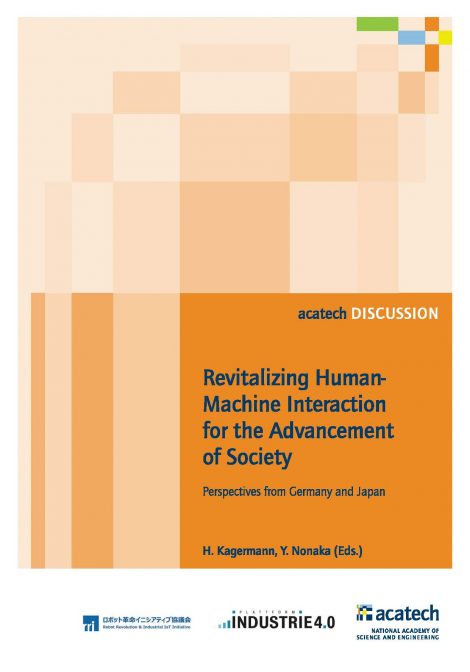Revitalizing Human-Machine Interaction for the Advancement of Society – Perspectives from Germany and Japan
In recent years, countries such as Germany and Japan are being faced with social challenges such as a maturing workforce or aging machines and infrastructure. Also, productivity declines can be expected in an older population due to diminishing physical and reactive capabilities. Digital technologies like Cyber-Physical Systems (CPS), Artificial Intelligence (AI), and robotics may help solve these social challenges. However, applying these technologies also impacts social transformation, since the technologies perform primarily routine cognitive tasks that were previously the domain of humans.
The present discussion seeks to establish how these problems should be defined and what new approaches in human-machine interaction (HMI) can contribute to achieving the goal of sustainable societies. Against the background of a qualitative change of humans and machines, it proposes that the digital transformation can enable a novel, human-centred manufacturing system in which humans concentrate on life-long skill improvement and continuously create high-value-added work.




